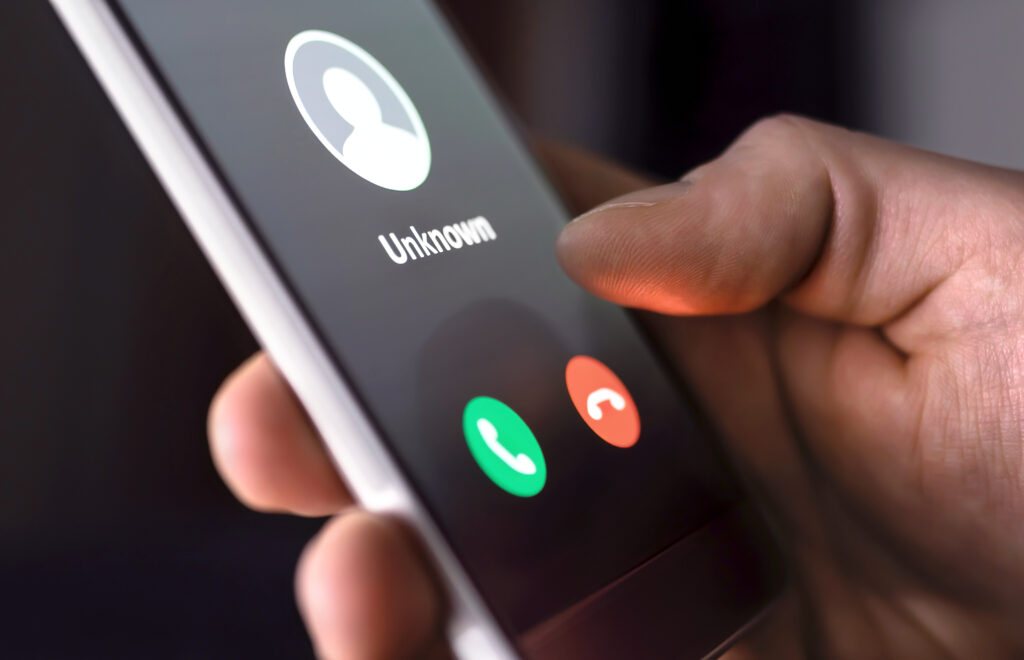In today’s world, everyone has fallen prey to some type of scam. Whether you got a fake email notice that you bought something or got a call on your cell phone that you can get your cable bill lowered, the scamming of America is in full effect.
The increase started in 2020 when 59 million American phone numbers were sold to whoever would buy them. Those numbers are now used to collect over forty billion in lost or stolen money given to clever telemarketers who feed your anxiety and ignorance.
Spam texts — called “smishing” for the combination of SMS and phishing — have more than doubled in three years. Robokiller (the text and spam call blocker app) estimated that eighty-seven billion of them were sent in 2021, up 58% from the previous year and that they collectively resulted in about $10 billion in losses.
The problem is so bad that it’s recommended you don’t answer numbers you don’t know and don’t respond to text messages you don’t know. If you answer a number that’s a scam, they’ll log it as a suitable number to call and you will be called daily, even if you report the number to the FCC (Federal Communications Commission). But the problem doesn’t end there.
PHONE SCAMS TO BE AWARE OF:
- ATT
- Spectrum
- Car insurance
- Reduction in the electrical bill
- Car warranty
- Social Security
- Any calls from someone with a middle eastern accent
“I got an email, that I thought was from Amazon, telling me someone purchased an iPhone from my account,” Demetrius said. “After doing some digging and calling the number they gave me, I realized it was a scam and hung up.”
Fake emails are on the rise as well. Scammers prey on people by alleging they purchased a product or service and in the process manage to collect the necessary information to rob their victims’ bank accounts of their entire balance.
“I have a friend who got an email stating that she’d purchased something and that the money was taken from her account. She called the number given and worked with the company to fix the problem.” Jonathon said. “She later discovered that they robbed her account of $36,000 and there was nothing she could do to get her money back.”
The problem of scamming has evolved to involve everything we do. Everywhere we look there seems to be an attempt to cheat the American consumer out of more money. The problem is so bad that being scammed is becoming part of everyday life.

The war in Ukraine, half a world away, seems to have impacted the world’s supply chain and pricing. Gas prices doubled, even though American supply chains were not impacted by the war itself. Food prices have risen by almost twenty percent due to inflation, which was caused by the war as well. Everything is going up, for no reason other than for companies to reap financial gains from the American consumer.
Car dealerships are hiding dealer markups in their financing and not informing consumers that the price of the new car they purchased was inflated by $5,000. They’ll discuss the monthly payment and not disclose the markup.
“I went to Honda recently to buy a new car and decided to take a friend who used to sell cars with me,” Rhonda said. “He discovered that they tried to hide a dealer markup in the purchase price. If it weren’t for him making them give us a breakdown of the costs, I would have paid that fee. Thank goodness I brought him with me!”
Used car dealers will often add a $1,000 dealer fee on top of the purchase price just to get additional money out of the deal. When asked about the fee, they’d rather not sell the car than remove the fee. And they’re getting away with it, it’s because people are willing to pay the fee out of desperation to get the car.
Retailers are now asking if consumers would like to give a dollar to the non-profit they represent when they go to check out.
“To me, it’s a scam,” Rimando said. “The retailer is only doing it to collect the write-off. They still give the money to the non-profit, but say it is from them, not the person paying the money. That’s not cool to me.”
So, what can be done for consumers to avoid becoming a victim of the countless scams happening all over?
If you answer a call and hear, “Can you hear me?” you should hang up immediately. Scammers do this to entice you into saying “yes.” It’s your response they record and then use it to unlock all kinds of sensitive information using voice response systems. Never click on links in a text unless you know the sender very well and never, ever click a URL from a link-shortening service.
Never respond to calls from your bank or credit card. They will never reach out to you to ask you questions about your account. Understand that apps do not have customer service departments. Apps like Cashapp and Venmo do not have customer service departments you can call. If something happens, go to the app’s website and leave a message about your issue.
There are Cashapp scammers waiting to take your call, only to gain access to your bank account to steal all your money from your account. Don’t give sensitive information about your accounts over the phone to any unverified third party, ever!
Don’t use your main credit card or debit card from your bank for any subscription services. Create or pick a card that isn’t tied to your main bank account. If you must cancel the card for any reason, it will not impact your ability to function normally.
Finally, pay cash whenever possible to avoid exposing your credit card information to anyone who could steal your information.
There’s no need to panic when it comes to living in our new world of scams. Think wisely, protect yourself, use common sense when engaging with anyone asking for personal information and always remember that scammers are out there waiting for you.
If you take the steps mentioned in this article, you should be fine.
You can register your numbers on the national Do Not Call list at no cost by calling 1-888-382-1222 (voice) or 1-866-290-4236 (TTY). You must call from the phone number you wish to register. You can also register by adding your personal wireless phone number to the national Do-Not-Call list donotcall.gov.


